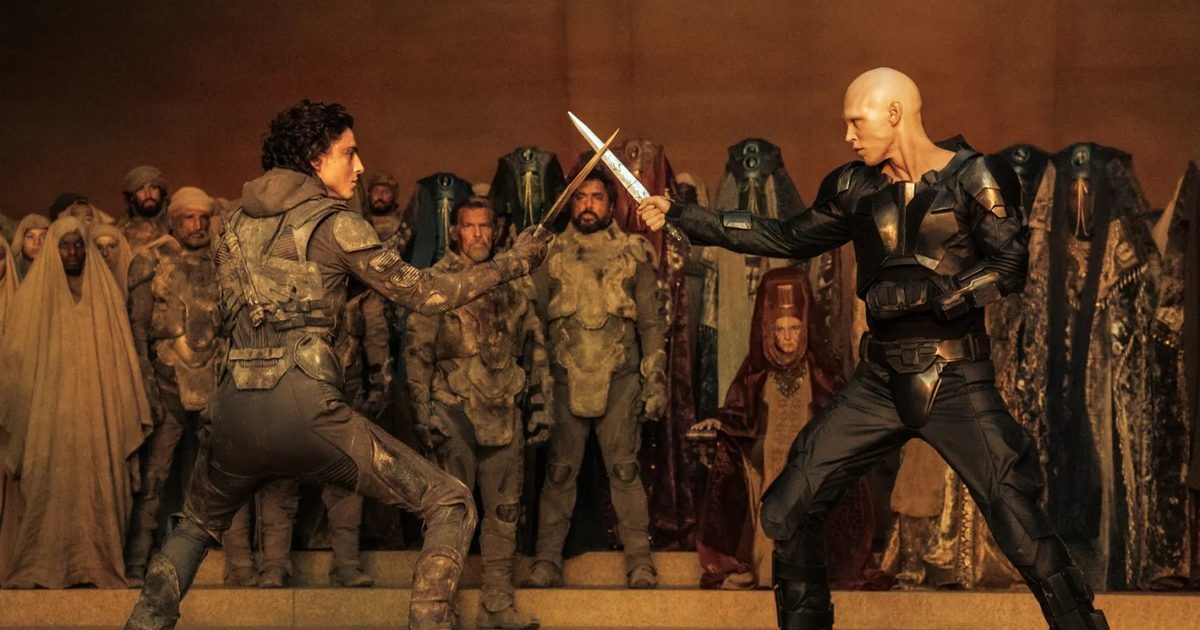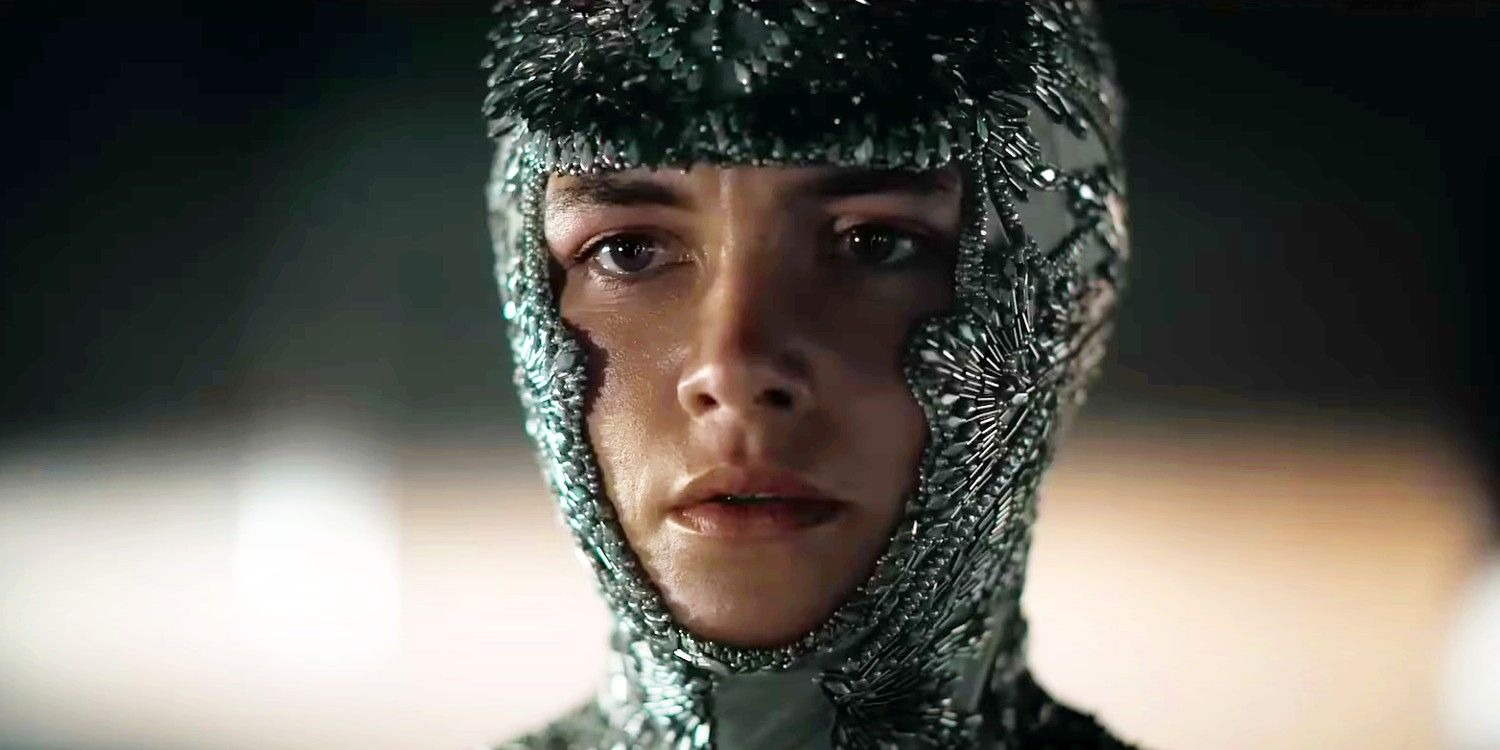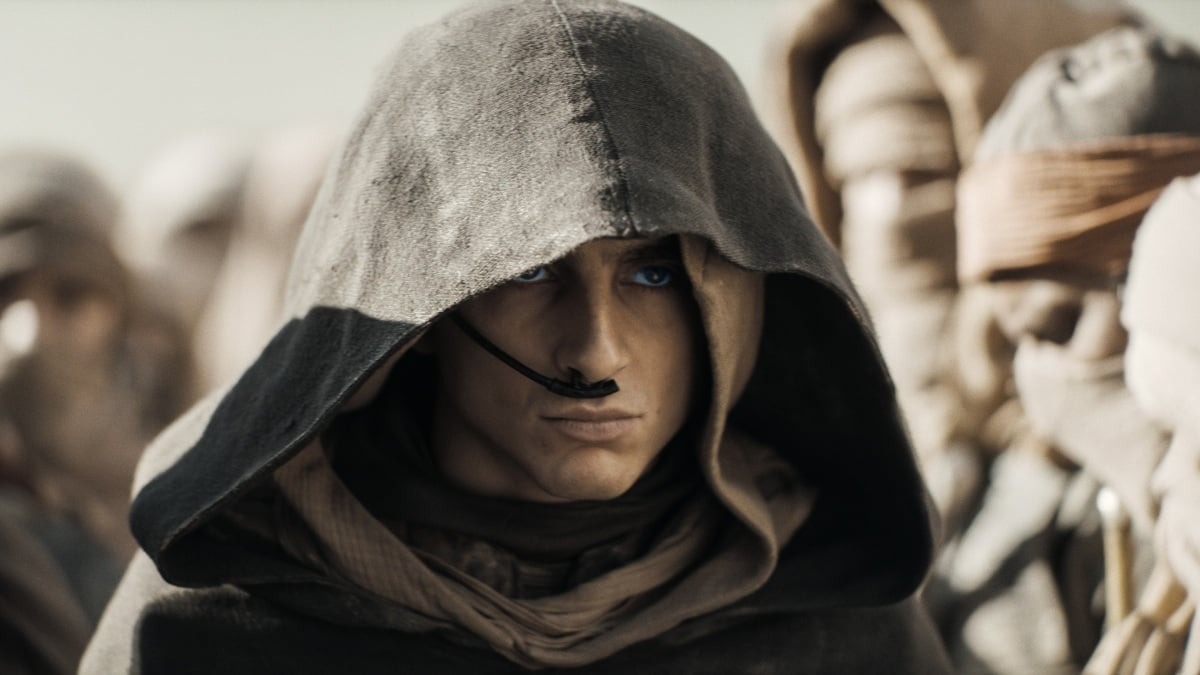Now that it’s been confirmed that Dune 3 is coming, many fans have started piecing together the clues scattered throughout the ending of Dune: Part Two as they try to predict the direction of the next chapter.
Questions have begun to arise from that final scene—what exactly does it mean? How important will Alia Atreides (played by Anya Taylor-Joy) be as the events move forward? Will Paul and Chani stay together? Is there a chance Chani is already carrying Paul’s child? And perhaps most pressingly, could Paul Atreides be heading down a darker road?
The conclusion of Dune 2 doesn’t offer the heroic finish some might have been hoping for. Instead, it shows Paul taking revenge for his father’s murder, which kicks off a massive war across Arrakis.

Serving as the closing chapter of Denis Villeneuve’s adaptation of Frank Herbert’s first novel, this sequel ranks among 2024’s most talked-about and commercially successful films. It also lays the groundwork for a trilogy, with the next instalment expected to draw from Dune Messiah.
The film doesn’t tie everything up neatly. Instead, it ends in a way that leaves viewers wondering what comes next—especially after Villeneuve made a key adjustment from the book regarding Paul and Chani, which adds even more uncertainty to their future.
Let’s now focus on how Dune 2 wrapped up and what it might mean for the story ahead.
Explanation of Dune 2’s Final Act
Paul had resisted heading south for a long time, haunted by visions that predicted destruction across the galaxy should he take power. But eventually, he decides to stop resisting.
Feyd-Rautha, now serving as Governor of Arrakis, has just wiped out Sietch Tabr—the settlement where Stilgar and the Fremen had been staying. This forces the survivors to move south, where Fremen leaders are organising a war council to respond to the threat.
As this plays, the legend of Muad’Dib—Paul’s Fremen identity—grows stronger, spreading from the deserts of Arrakis all the way to the Emperor’s palace and to Princess Irulan.
Although the Emperor remains seemingly indifferent, Irulan expresses concern. She warns, “You underestimate the power of faith.” Her suggestion is to allow conflict to spread on Arrakis, and once enough damage is done, they can present themselves as rescuers. While Irulan has trained under the Bene Gesserit, it’s clear she harbours doubts about their methods.
The Bene Gesserit have long aimed to produce a powerful lineage, but they prefer to maintain control. Now, the Reverend Mother wants to end the Atreides bloodline altogether, claiming they’ve become too influential and disobedient. She sees Feyd-Rautha as a better tool to govern Arrakis.
To carry this out, Margot Fenring (played by Léa Seydoux) is sent to manipulate the Baron’s nephew. She seduces him and reports back, saying he’s emotionally exposed, especially when it comes to his mother. This vulnerability is something they intend to use.
Margot adds another layer to their strategy—she’s already pregnant with his child, securing the bloodline from their side. She’s acting swiftly and decisively.
While the Bene Gesserit move their approach, Lady Jessica remains firmly in support of her son Paul.
Earlier in the film, Jessica—while pregnant—becomes a Reverend Mother among the Fremen by drinking the Water of Life, a dangerous substance. While most expected her to die from it, she survives, and the experience grants strange abilities to her unborn child.
Jessica later visits the source of this liquid, which is harvested from drowned sandworms in a sacred pond, to understand it better.
Eventually, Paul comes to the same location and is offered the Water of Life. Drinking it opens his mind to the truths of the past, present, and future.
One vision reveals his sister Alia as a fully grown woman (portrayed by Anya Taylor-Joy). She hints that Paul is unprepared for the truth about their family—specifically that they share Harkonnen blood. Jessica is the daughter of the Baron, meaning Paul is the Baron’s grandson.
Paul gets stuck in this trance. Prophecy indicates that Chani is the only one who can revive him. “He shall be brought back from the dead with Spring Desert tears,” it says. Earlier, we learn that Chani’s Fremen name means Spring Desert. Following Jessica’s urging, Chani cries, and her tears bring Paul back, now filled with powerful knowledge.
He becomes aware of numerous future paths, similar to what Doctor Strange experienced in Avengers: Endgame. There’s just one path that leads to Arrakis being freed—even though it may come at a personal cost. We’ll touch on that soon.
At the war council, Paul rises to fulfil his destiny—he is now viewed as a true leader and spiritual figure. He rallies the Fremen for a final battle.
Sensing growing unrest, the Emperor lands on Arrakis with his forces. House Harkonnen becomes uneasy at his arrival and reaches out to all Great Houses to observe what happens next.
As Gurney recovers the Atreides’ atomic weapons and deploys them across Arrakeen, the capital city is partially destroyed. Giant sandworms rise as battle breaks out.
Inside the Imperial spacecraft, where the most powerful figures have gathered, Paul appears with his face concealed. After making his way through the chaos, he enters the room, kills the Baron, and finally gets justice for his father’s death.
He then turns his attention to the Emperor and demands a duel or a chosen opponent. Feyd-Rautha steps forward to fight. As tradition requires, conflicts between Great Houses are decided through such combat.
Paul wins the duel by killing his cousin. Instead of executing the Emperor, he forces him to kneel and kiss the Atreides ring. Paul gains full control of Arrakis and its spice trade. He also becomes engaged to Irulan, taking steps toward the throne.
Everyone bows—except Chani. She storms out of the chamber and walks into the desert, bringing the movie to a dramatic close.
Will Paul and Chani Stay Together?
As things currently stand, Paul and Chani’s relationship appears uncertain.
Earlier, Paul tells Lady Jessica, “She’ll come to understand… I’ve seen it.” Based on his visions, he believes this is the best possible option—even if it’s painful. He seems confident that Chani will one day accept what he’s done.
This is a change from the novel, where Chani doesn’t walk away after Paul defeats Feyd-Rautha. If the third film follows Dune: Messiah, Chani could return, and Paul’s comments suggest he believes so too.
Director Denis Villeneuve made this alteration because he felt it adds deeper emotional layers for viewers.
He explained that Paul’s decision to marry Irulan is a political necessity due to the feudal nature of their society. However, the film frames it in a way that highlights romance and heartbreak more vividly.
From Chani’s point of view, it’s not just the engagement that hurts—it’s seeing Paul become the very thing he once swore to resist.
Is Paul Turning into a Villain?
Paul’s journey might have taken a troubling turn, and whether or not Chani forgives him could be the least of his problems.
The Great Houses don’t recognise his new position. Gurney says they “refuse to honour your ascendency.” Paul responds with, “Send them to paradise,” and Jessica announces the beginning of a “Holy War.”
Villeneuve’s films have made it clear that Paul’s rise doesn’t guarantee peace. His visions have hinted at darker consequences, and Dune: Messiah continues this thread.

Villeneuve remained committed to Frank Herbert’s original intentions. He wanted to adjust some audience perceptions that didn’t align with the book.
“When the book first came out, Herbert was upset that people saw Paul as a hero,” Villeneuve said in an interview with Inverse.
According to him, Herbert aimed to caution readers about blindly following charismatic leaders. Paul wasn’t meant to be celebrated, but questioned.
To support this, Villeneuve subtly rearranged events and character choices to highlight this complexity. By the movie’s end, Paul sacrifices his ideals and becomes what he once stood against—all in the name of protecting others. This decision costs him dearly and distances him from those closest to him.
Is Chani Expecting a Child by the End of Dune 2?
Apart from changing the ending and including Alia in a surprising way, Villeneuve adjusted one more detail from the book.
In the original novel, Paul and Chani have a son named Leto during their time among the Fremen. That child is later killed when the Harkonnens attack the Fremen base—a scene that is reflected in the movie.
However, this event doesn’t play out in Dune 2. There’s also no indication that Chani is pregnant at any point in the film.



